Indigenous leader Lowitja O’Donoghue dies, aged 91
Lowitja O’Donoghue helped construct the post-Mabo settlement that reshaped the relationship between white and black Australia.
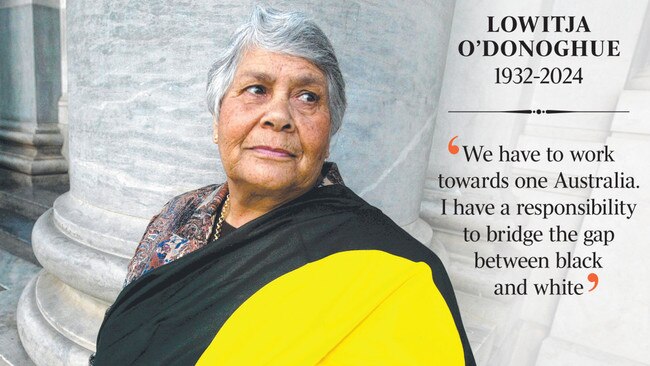
Lowitja O’Donoghue’s long and celebrated journey from a child of the Stolen Generations to one of the nation’s most beloved Indigenous leaders has ended with her death on Kaurna Country in South Australia. She was 91.
If Pat Dodson was the father of Aboriginal reconciliation, she became its mother: generous, patient and tenacious in her advocacy, Dr O’Donoghue helped construct the post-Mabo settlement that reshaped the relationship between white and black Australia.
She rose from the humblest circumstances imaginable – born on a cattle station in the red dirt north of Oodnadatta, she was one of six children that her Aboriginal mother, Lily, had with Irish-Catholic stockman Tom O’Donoghue – and went on to a forge a life replete with firsts, having being torn away from her family aged two to be raised by Christian missionaries.
Dr O’Donoghue was the first Indigenous woman to train as a nurse at the Royal Adelaide Hospital; she campaigned in the historic 1967 referendum that recognised Indigenous people as full citizens and empowered the federal government to make laws in their interest; she was appointed the first chair of the Aboriginal and Torres Strait Islander Commission, an ambitious but ill-fated attempt to create a combined representative “voice” and service delivery agency; she became the first Indigenous person to make an address at the UN General Assembly podium.
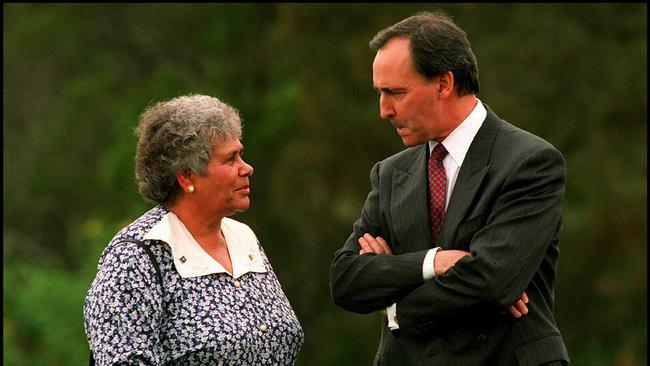
Paul Keating backed her to become the first president of an Australian republic, according to prime ministerial speech writer and biographer Don Watson, but he was unable to advance the idea before being defeated by John Howard at the 1996 election and voters put paid to the constitutional change at a referendum three years later.
Famously, Dr O’Donoghue would publicly shame Mr Howard by turning her back on him while he was addressing the Australian Reconciliation Convention in 1997, protesting against his refusal to apologise to the Stolen Generations after the Bringing Them Home report laid bare the trauma inflicted on separated children and their birth families. By then her own, harrowing story was well known. After being taken from Lily, she was brought up in a home for so-called half-caste children and sent to work as a domestic servant; she did not see her mother for another 33 years.
Leading the tributes after her death was announced by the Lowitja Institute on Sunday, Anthony Albanese said Dr O’Donoghue had embodied an “abiding faith in the possibility of a more united and reconciled Australia”. She stood as one of the most remarkable leaders that the nation had produced, the Prime Minister said.
“Life threw significant challenges at her – not least a childhood in which she was separated from her family, her language and even her own name. From the earliest days of her life, (she) endured discrimination that would have given her every reason to lose faith in her country. Yet she never did.”
Dr O’Donoghue, he said, “was a figure of grace, moral clarity and extraordinary inner strength. She was like a rock that stood firm in a storm – sometimes even staring down the storm. More than anything, she was one of the great rocks around which the river of our history gently bent, persuaded to flow along a better course.”
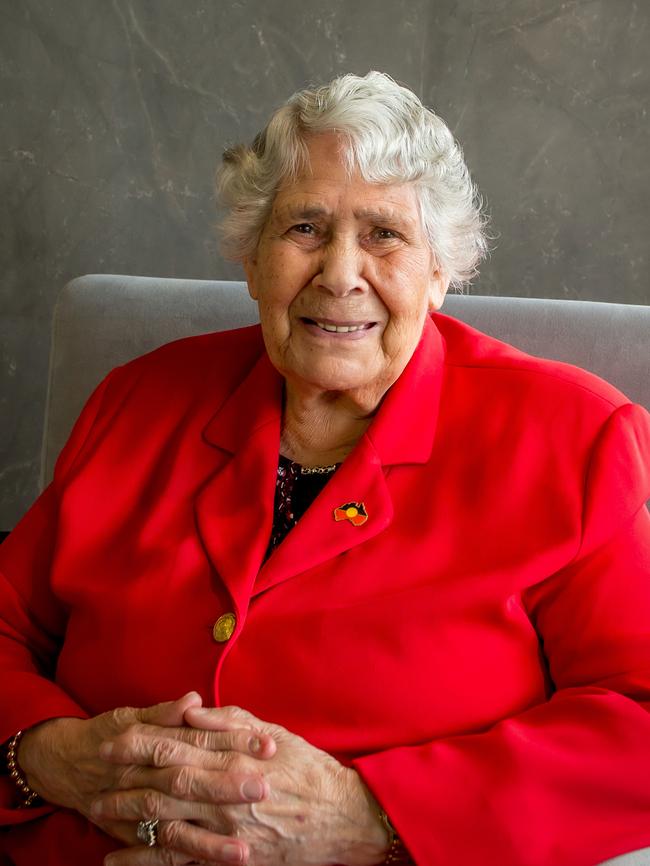
Peter Dutton said her life was defined by “giving back” to the people around her and to those who followed her lead.
“Lowitja will be remembered for advancing recognition, furthering the cause of reconciliation and fighting for Indigenous rights and representation,” the Opposition Leader said.
“For these reasons, she was renowned, widely respected and rightly acknowledged. Her work will continue in all those she has inspired and through her eponymous institute.”
Mr Keating said Dr O’Donoghue was “a great Indigenous woman, a very great one”. “Lowitja O’Donoghue served her people with high dedication and unremitting faith,” he said. “Her death represents an unmitigated loss to her people and the Australian community at large.”
Mr Dodson, the founding chair of the Council for Aboriginal Reconciliation, said Australia’s First Peoples had lost a leader of great courage and strength. “Hers was a strong voice, and her intelligent navigation for our rightful place in a resistant society resulted in many of the privileges we enjoy today,” he said. “She will be forever remembered in our hearts.”
Noel Pearson said she was “our grand lady” who had “tutored many of us in our callow years”.
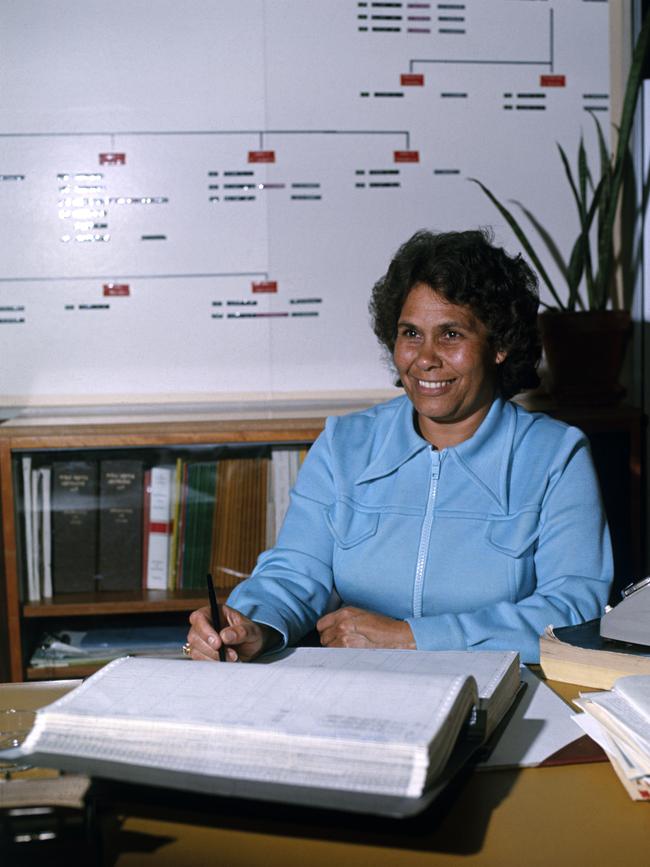
“She was our greatest leader of the modern era, the finale of which was her chairmanship of the Aboriginal and Torres Strait Islander Commission from its inception to the end of the Keating government in 1996,” he said.
“These were ATSIC’s best years. They were years of great coherence in Indigenous affairs, before the national commission’s subsequent poor leadership played into the hands of the Howard government’s antipathy to all things Indigenous.”
Mr Albanese said Dr O’Donoghue had provided “courageous leadership” during the politically charged debates on the High Court’s 1992 Mabo decision recognising native title, a watershed that “carried (us) closer to the better future she knew was possible for us.”
Mr Pearson, who rose to prominence at that time, said on Sunday: “Without Lowitja’s ATSIC, we would never have defended Eddie Mabo’s great legacy and negotiated the Native Title Act and Indigenous Land Fund. She was full of grace and fortitude.”
A humble woman, Dr O’Donoghue rarely spoke of personal achievements, preferring to emphasise the work that needed to be done. She once said: “We have to work towards one Australia. I have a responsibility to bridge the gap between black and white.”
Dr O’Donoghue died peacefully in Adelaide, with members of her family at her bedside.
“Aunty Lowitja dedicated her lifetime of work to the rights, health and wellbeing of Aboriginal and Torres Strait Islander peoples,” niece Deb Edwards said. “We thank and honour her for all she has done – for the pathways she created, for all the doors she opened, for all the issues she tackled head-on, for all the tables she sat at and for all the arguments she fought and won.”


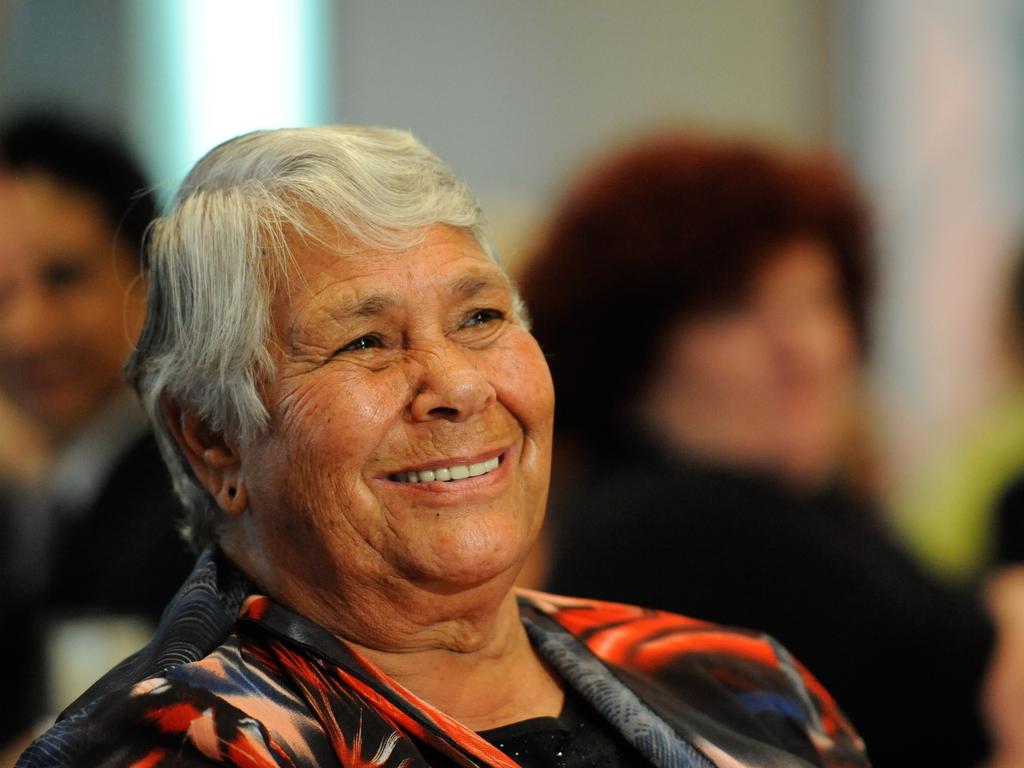



To join the conversation, please log in. Don't have an account? Register
Join the conversation, you are commenting as Logout